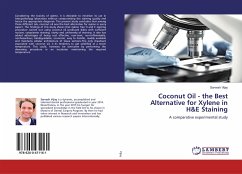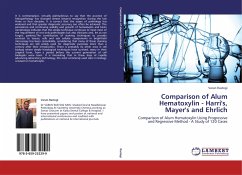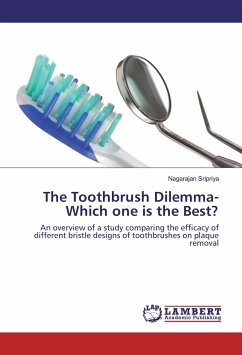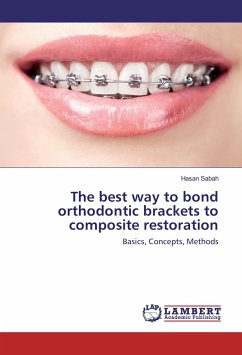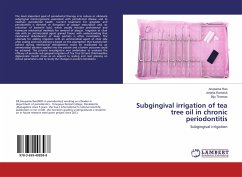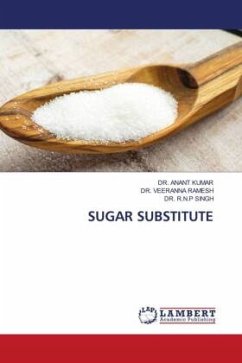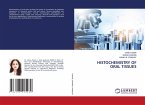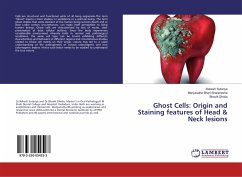Considering the toxicity of xylene, it is desirable to minimize its use in histopathology laboratory without compromising the staining quality and hence the appropriate diagnosis. The present study concludes that among three different oils, coconut oil was the best alternative for xylene in every aspect. The findings of this study shows that xylene free H and E staining procedure carried out using coconut oil produced slides with sufficient nuclear, cytoplasmic staining, clarity and uniformity of staining. It also has added advantages of being cost effective, non-toxic, non-inflammable, nonhazardous, biodegradable, economic, easy to handle, readily available and maintains cellular architecture of tissue sections.The only drawback associated with coconut oil, is its tendency to get solidified at a lower temperature. This could, however, be overcome by performing the dewaxing procedure in an incubator maintaining the required temperature.

